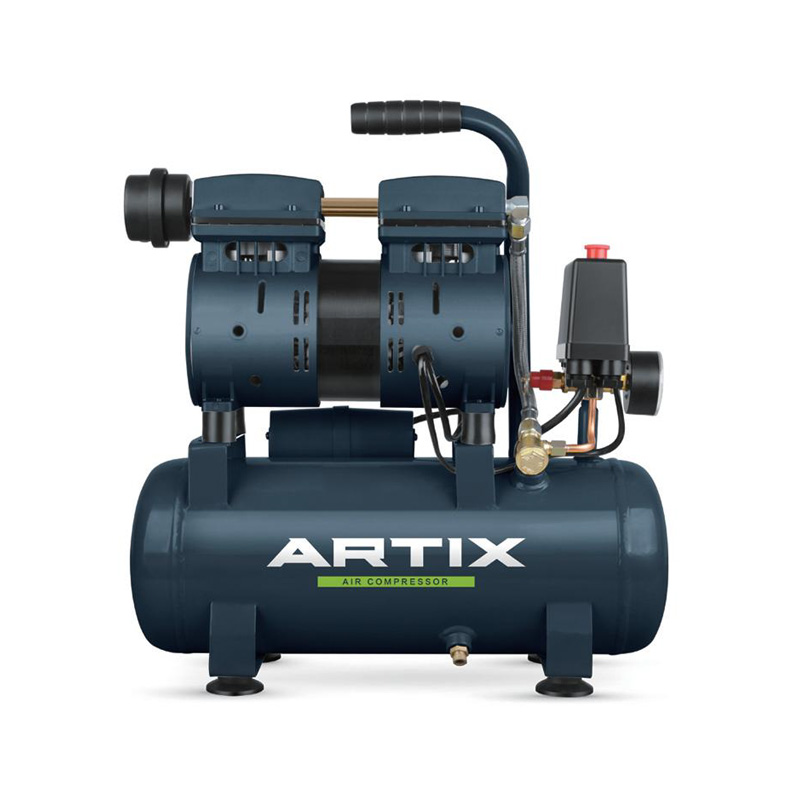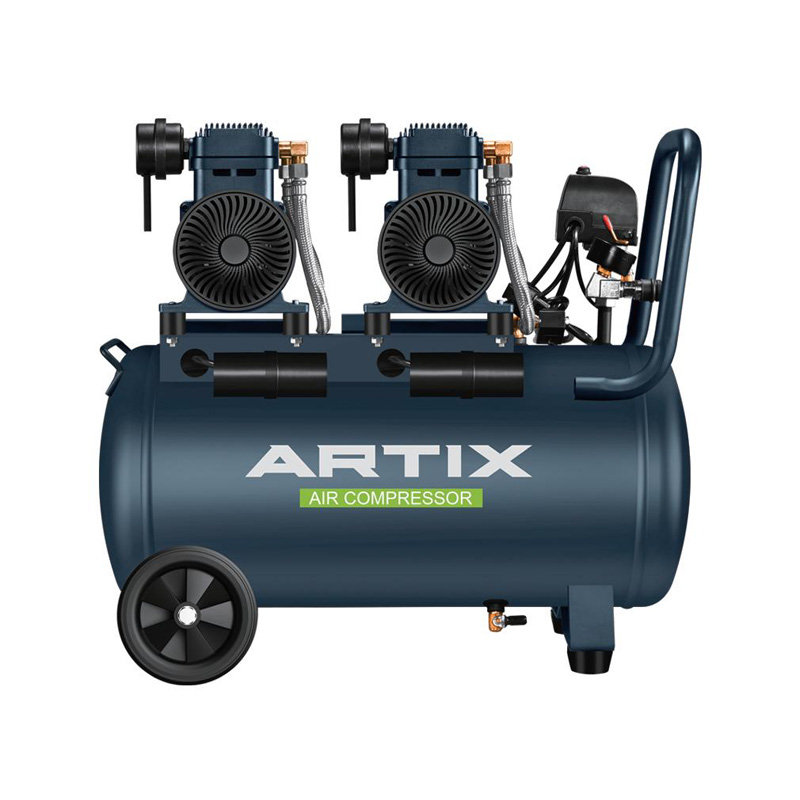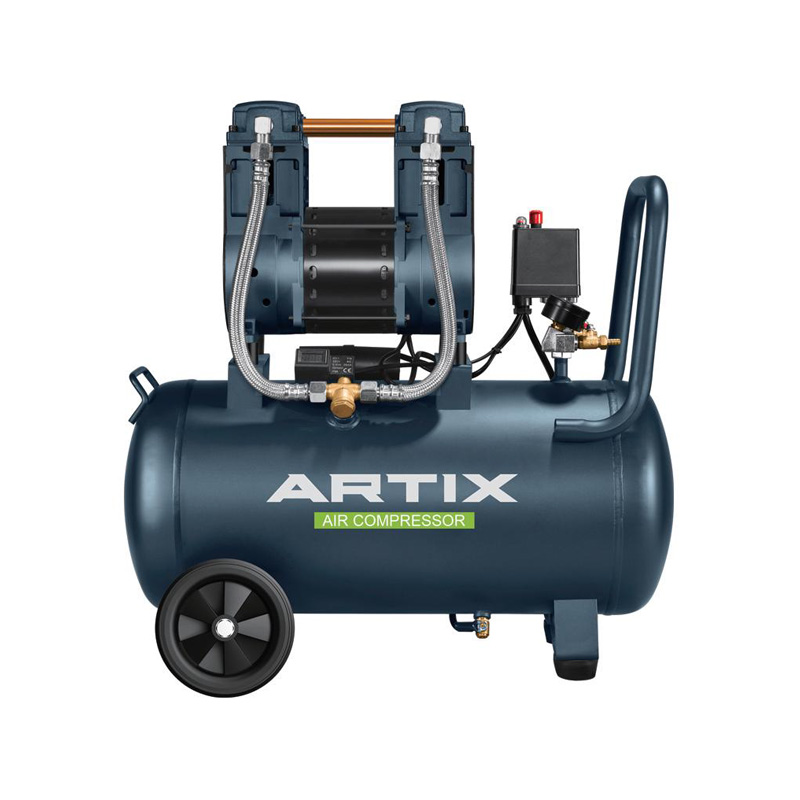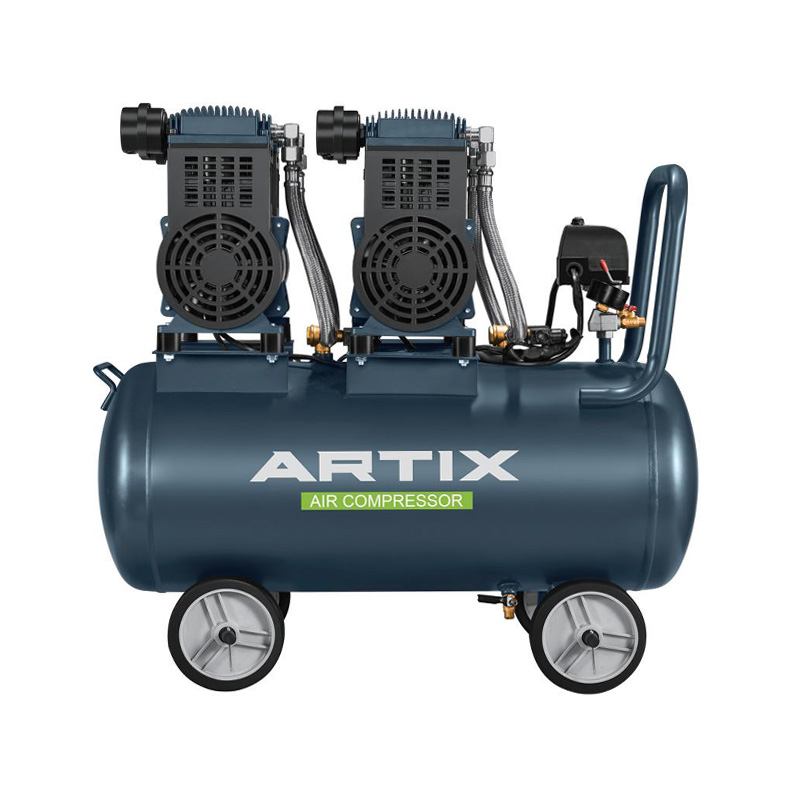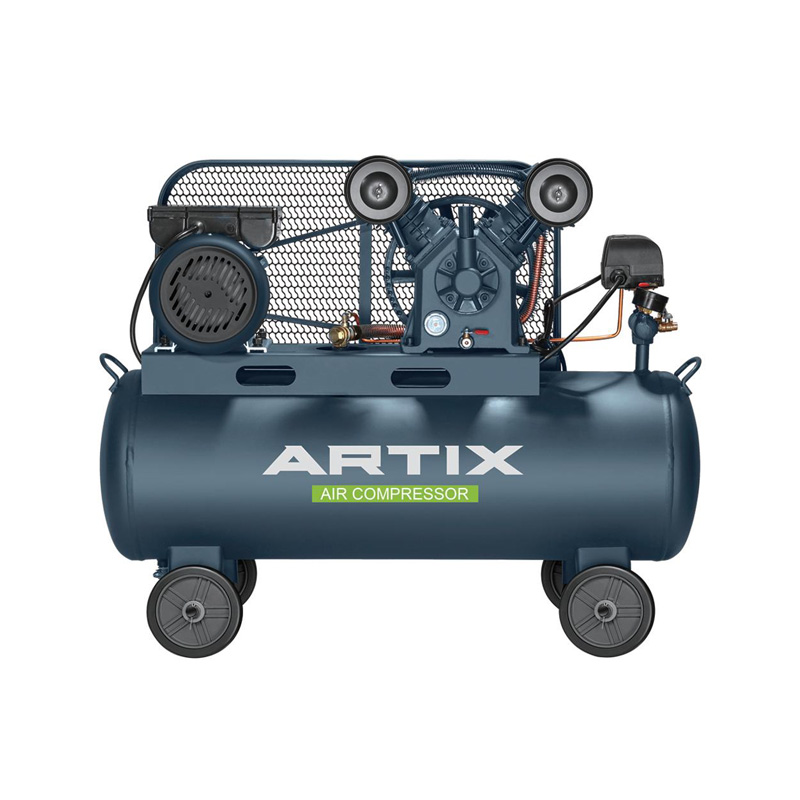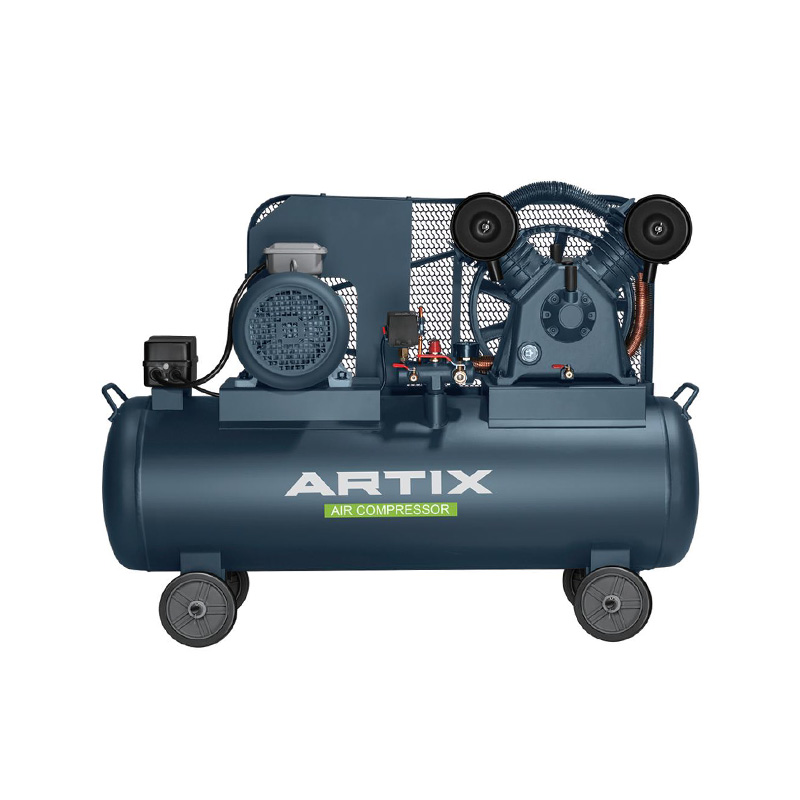The air compressor industry is undergoing transformative shifts driven by technological advancements, environmental concerns, and changing customer expectations. Air compressors, especially oil-free options, are pivotal in various sectors like manufacturing, healthcare, and food processing, making efficiency, sustainability, and low noise operation key aspects of development. This article will explore the latest trends influencing air compressors, including the growing use of air stream air compressors, air compressor for factory, and innovations in quiet oil-free technology.
1. Growing Demand for Quiet, Oil-Free Air Compressors
One significant trend is the increasing demand for quiet, oil-free air compressors. Traditional air compressors are often noisy, which can disrupt factory workflows and reduce overall worker productivity. However, recent innovations have made it possible to produce quieter compressors, with a focus on creating comfortable working environments. Quiet, oil-free air compressors are not only advantageous for reducing workplace noise but are also well-suited for industries where noise levels are regulated, such as healthcare and laboratory settings.
Oil-free air compressors also support industries requiring contaminant-free air. Because they operate without oil, they provide a higher level of air purity, which is essential in sectors like food and beverage manufacturing, electronics, and pharmaceuticals. Additionally, the absence of oil less maintenance needs, making these compressors a preferred choice for factory applications that require consistent and clean air output.
2. The Rise of Air Stream Air Compressors in Diverse Applications
Air stream air compressors are another trend shaping the industry. These compressors provide a steady, adjustable airflow, which is critical in industries that demand precise air pressure control. Many manufacturers appreciate air stream technology for its versatility and efficiency, especially in settings where air consumption may vary depending on the task. By adjusting airflow and pressure, air stream compressors can help factories optimize energy consumption and reduce waste, aligning with growing sustainability goals.
As industries prioritize energy efficiency, air stream air compressors are gaining popularity. They are designed for less energy loss, which is an attractive feature for factories seeking to lower operational costs. This trend towards energy-saving devices reflects broader industry efforts to meet environmental regulations and reduce the carbon footprint associated with industrial processes.
3. Air Compressors Designed for air Compressor For Factory
In recent years, there has been a shift towards developing air compressors tailored to specific factory environments. Each industry has unique requirements, and air compressor manufacturers are increasingly focusing on creating products that align with these distinct needs. For instance, certain factories may require air compressors capable of withstanding bad temperatures or operating continuously over extended periods.
Factories in the automotive, aerospace, and electronics industries require compressors with high reliability, durability, and precise control to support critical production processes. In response, manufacturers are designing air compressors equipped with advanced features such as real-time monitoring, automated shutdown systems, and variable-speed drives. These features allow factory operators to closely monitor compressor performance and make adjustments to maximize efficiency.
4. Focus on Energy Efficiency and Sustainability
Energy efficiency remains a core priority in air compressor innovation. Factories often operate air compressors for extended hours, and as such, energy consumption is a significant concern. Innovations in energy-efficient designs, such as variable frequency drives (VFDs) in air compressors, allow for dynamic adjustment of air pressure according to demand. This reduces energy consumption and lowers overall operational costs.
In addition to VFDs, energy recovery systems are becoming more prevalent in modern air compressors. These systems capture waste heat generated by compressors, which can then be repurposed for other factory operations, such as heating. Energy recovery is a practical solution for enhancing sustainability by reducing resource waste and helping factories achieve more eco-friendly operations.
Furthermore, the shift towards oil-free air compressors contributes to environmental goals by eliminating the disposal of oil-laden waste and reducing water pollution. This shift aligns with broader regulatory standards that call for greener manufacturing practices. As governments continue to emphasize environmental compliance, the demand for sustainable air compressors, particularly oil-free and energy-efficient models, is likely to grow.
5. Increasing Integration of Smart Technology and IoT
Smart technology and the Internet of Things (IoT) are increasingly integrated into air compressors, particularly for factory applications where remote monitoring and predictive maintenance are valuable. IoT-enabled compressors can continuously monitor critical performance metrics, such as temperature, pressure, and airflow, providing factory operators with real-time data to make informed decisions.
Predictive maintenance is one of the key benefits of IoT-enabled air compressors. By analyzing data trends, these systems can predict potential issues before they cause downtime, allowing factories to address maintenance needs proactively. This not only increases productivity but also extends the life of the compressor, further optimizing the investment for factories.
Additionally, the integration of IoT makes it easier to manage multiple compressors from a central system. This capability is beneficial for large factories that may operate several compressors simultaneously. Smart technology in air compressors also supports energy management by allowing for precise control of air output and consumption, aligning with industry goals for efficient and sustainable operations.
